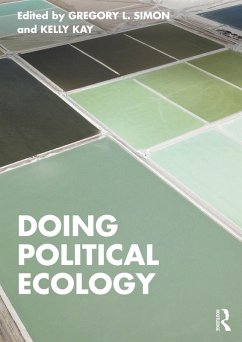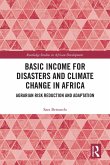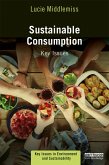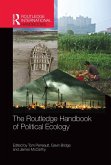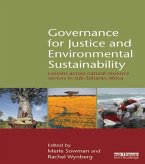Doing Political Ecology (eBook, PDF)
Redaktion: Simon, Gregory L.; Kay, Kelly
39,95 €
39,95 €
inkl. MwSt.
Sofort per Download lieferbar

20 °P sammeln
39,95 €
Als Download kaufen

39,95 €
inkl. MwSt.
Sofort per Download lieferbar

20 °P sammeln
Jetzt verschenken
Alle Infos zum eBook verschenken
39,95 €
inkl. MwSt.
Sofort per Download lieferbar
Alle Infos zum eBook verschenken

20 °P sammeln
Doing Political Ecology (eBook, PDF)
Redaktion: Simon, Gregory L.; Kay, Kelly
- Format: PDF
- Merkliste
- Auf die Merkliste
- Bewerten Bewerten
- Teilen
- Produkt teilen
- Produkterinnerung
- Produkterinnerung

Bitte loggen Sie sich zunächst in Ihr Kundenkonto ein oder registrieren Sie sich bei
bücher.de, um das eBook-Abo tolino select nutzen zu können.
Hier können Sie sich einloggen
Hier können Sie sich einloggen
Sie sind bereits eingeloggt. Klicken Sie auf 2. tolino select Abo, um fortzufahren.

Bitte loggen Sie sich zunächst in Ihr Kundenkonto ein oder registrieren Sie sich bei bücher.de, um das eBook-Abo tolino select nutzen zu können.
Since its inception, the field of political ecology has served as a hub for inclusive and transformative environmental inquiry. Doing Political Ecology offers a distinctive entry point into this ever-growing field and argues that our scholarly "foundations" comprise a cross-cutting latticework of research approaches and concepts.
- Geräte: PC
- mit Kopierschutz
- eBook Hilfe
Andere Kunden interessierten sich auch für
![Doing Political Ecology (eBook, ePUB) Doing Political Ecology (eBook, ePUB)]() Doing Political Ecology (eBook, ePUB)39,95 €
Doing Political Ecology (eBook, ePUB)39,95 €![Basic Income for Disasters and Climate Change in Africa (eBook, PDF) Basic Income for Disasters and Climate Change in Africa (eBook, PDF)]() Sara BernardoBasic Income for Disasters and Climate Change in Africa (eBook, PDF)43,95 €
Sara BernardoBasic Income for Disasters and Climate Change in Africa (eBook, PDF)43,95 €![Sustainable Consumption (eBook, PDF) Sustainable Consumption (eBook, PDF)]() Lucie MiddlemissSustainable Consumption (eBook, PDF)43,95 €
Lucie MiddlemissSustainable Consumption (eBook, PDF)43,95 €![Solar Energy, Mini-grids and Sustainable Electricity Access (eBook, PDF) Solar Energy, Mini-grids and Sustainable Electricity Access (eBook, PDF)]() Kirsten UlsrudSolar Energy, Mini-grids and Sustainable Electricity Access (eBook, PDF)24,95 €
Kirsten UlsrudSolar Energy, Mini-grids and Sustainable Electricity Access (eBook, PDF)24,95 €![Discovering Political Ecology (eBook, PDF) Discovering Political Ecology (eBook, PDF)]() Gustav CederlöfDiscovering Political Ecology (eBook, PDF)39,95 €
Gustav CederlöfDiscovering Political Ecology (eBook, PDF)39,95 €![The Routledge Handbook of Political Ecology (eBook, PDF) The Routledge Handbook of Political Ecology (eBook, PDF)]() The Routledge Handbook of Political Ecology (eBook, PDF)49,95 €
The Routledge Handbook of Political Ecology (eBook, PDF)49,95 €![Governance for Justice and Environmental Sustainability (eBook, PDF) Governance for Justice and Environmental Sustainability (eBook, PDF)]() Governance for Justice and Environmental Sustainability (eBook, PDF)0,00 €
Governance for Justice and Environmental Sustainability (eBook, PDF)0,00 €-
-
-
Since its inception, the field of political ecology has served as a hub for inclusive and transformative environmental inquiry. Doing Political Ecology offers a distinctive entry point into this ever-growing field and argues that our scholarly "foundations" comprise a cross-cutting latticework of research approaches and concepts.
Dieser Download kann aus rechtlichen Gründen nur mit Rechnungsadresse in A, B, BG, CY, CZ, D, DK, EW, E, FIN, F, GR, HR, H, IRL, I, LT, L, LR, M, NL, PL, P, R, S, SLO, SK ausgeliefert werden.
Produktdetails
- Produktdetails
- Verlag: Taylor & Francis eBooks
- Seitenzahl: 316
- Erscheinungstermin: 2. Oktober 2024
- Englisch
- ISBN-13: 9781040120200
- Artikelnr.: 72273768
- Verlag: Taylor & Francis eBooks
- Seitenzahl: 316
- Erscheinungstermin: 2. Oktober 2024
- Englisch
- ISBN-13: 9781040120200
- Artikelnr.: 72273768
- Herstellerkennzeichnung Die Herstellerinformationen sind derzeit nicht verfügbar.
Gregory L. Simon is a Professor in the Department of Geography and Environmental Sciences at the University of Colorado Denver. He has held positions at ETH Zurich, Stanford University, University of Colorado Boulder, and UCLA. His research examines the development and governance of social-environmental risks and vulnerabilities. Kelly Kay is an Associate Professor in the Department of Geography at the University of California, Los Angeles. She received her PhD from Clark University and has held academic appointments at UC Berkeley and The London School of Economics and Political Science. Her research is concerned with the political economy of the environment.
0.Introduction. Section I - Politicizing Environmental Management.
1.Sustaining Nature: Climate change and the catastrophe to come in
Kiribati. 2.Producing Nature: Where Biophysical Materialities Meet Social
Dynamics. 3.Contesting Nature: Nature as a field of power, difference and
resistance. Section II: Making Nature Knowable. 5.Narrating Nature:
Decolonizing Socio-Ecological Assemblages. 7.Valuing nature: Constructing
'value' and representing interests in environmental decision-making.
8.Enumerating Nature: Engaging Environmental Science and Data within
Critical Nature-Society Scholarship. Section III: Capital, Colonialism, and
Political Economy. 9.Globalizing Nature: Long-standing structures and
contemporary processes. 10.Monetizing Nature: From Resource-Making to
Financialization. 11.Protecting Nature: Political Ecologies of Conservation
through the lens of Peace Parks. 12.Degrading Nature: Production and the
Hidden Ecology of Capital. 13.Consuming nature: From the politics of
purchasing to the politics of ingestion. Section IV: Political Ecologies of
Identities, Difference and Justice. 14.Engaging Nature: Public Political
Ecology for Transformative Climate Justice. 15.Gendering Nature: From
Ecofeminism to Feminist Political Ecology. 16.Racializing nature: The Place
of Race in Environmental Imaginaries and Histories. 17.Embodying Nature:
De-centering and re-centering bodies as socio-nature. 18.Unruly Nature:
Non-human intractability and multispecies endurance.
1.Sustaining Nature: Climate change and the catastrophe to come in
Kiribati. 2.Producing Nature: Where Biophysical Materialities Meet Social
Dynamics. 3.Contesting Nature: Nature as a field of power, difference and
resistance. Section II: Making Nature Knowable. 5.Narrating Nature:
Decolonizing Socio-Ecological Assemblages. 7.Valuing nature: Constructing
'value' and representing interests in environmental decision-making.
8.Enumerating Nature: Engaging Environmental Science and Data within
Critical Nature-Society Scholarship. Section III: Capital, Colonialism, and
Political Economy. 9.Globalizing Nature: Long-standing structures and
contemporary processes. 10.Monetizing Nature: From Resource-Making to
Financialization. 11.Protecting Nature: Political Ecologies of Conservation
through the lens of Peace Parks. 12.Degrading Nature: Production and the
Hidden Ecology of Capital. 13.Consuming nature: From the politics of
purchasing to the politics of ingestion. Section IV: Political Ecologies of
Identities, Difference and Justice. 14.Engaging Nature: Public Political
Ecology for Transformative Climate Justice. 15.Gendering Nature: From
Ecofeminism to Feminist Political Ecology. 16.Racializing nature: The Place
of Race in Environmental Imaginaries and Histories. 17.Embodying Nature:
De-centering and re-centering bodies as socio-nature. 18.Unruly Nature:
Non-human intractability and multispecies endurance.
0.Introduction. Section I - Politicizing Environmental Management.
1.Sustaining Nature: Climate change and the catastrophe to come in
Kiribati. 2.Producing Nature: Where Biophysical Materialities Meet Social
Dynamics. 3.Contesting Nature: Nature as a field of power, difference and
resistance. Section II: Making Nature Knowable. 5.Narrating Nature:
Decolonizing Socio-Ecological Assemblages. 7.Valuing nature: Constructing
'value' and representing interests in environmental decision-making.
8.Enumerating Nature: Engaging Environmental Science and Data within
Critical Nature-Society Scholarship. Section III: Capital, Colonialism, and
Political Economy. 9.Globalizing Nature: Long-standing structures and
contemporary processes. 10.Monetizing Nature: From Resource-Making to
Financialization. 11.Protecting Nature: Political Ecologies of Conservation
through the lens of Peace Parks. 12.Degrading Nature: Production and the
Hidden Ecology of Capital. 13.Consuming nature: From the politics of
purchasing to the politics of ingestion. Section IV: Political Ecologies of
Identities, Difference and Justice. 14.Engaging Nature: Public Political
Ecology for Transformative Climate Justice. 15.Gendering Nature: From
Ecofeminism to Feminist Political Ecology. 16.Racializing nature: The Place
of Race in Environmental Imaginaries and Histories. 17.Embodying Nature:
De-centering and re-centering bodies as socio-nature. 18.Unruly Nature:
Non-human intractability and multispecies endurance.
1.Sustaining Nature: Climate change and the catastrophe to come in
Kiribati. 2.Producing Nature: Where Biophysical Materialities Meet Social
Dynamics. 3.Contesting Nature: Nature as a field of power, difference and
resistance. Section II: Making Nature Knowable. 5.Narrating Nature:
Decolonizing Socio-Ecological Assemblages. 7.Valuing nature: Constructing
'value' and representing interests in environmental decision-making.
8.Enumerating Nature: Engaging Environmental Science and Data within
Critical Nature-Society Scholarship. Section III: Capital, Colonialism, and
Political Economy. 9.Globalizing Nature: Long-standing structures and
contemporary processes. 10.Monetizing Nature: From Resource-Making to
Financialization. 11.Protecting Nature: Political Ecologies of Conservation
through the lens of Peace Parks. 12.Degrading Nature: Production and the
Hidden Ecology of Capital. 13.Consuming nature: From the politics of
purchasing to the politics of ingestion. Section IV: Political Ecologies of
Identities, Difference and Justice. 14.Engaging Nature: Public Political
Ecology for Transformative Climate Justice. 15.Gendering Nature: From
Ecofeminism to Feminist Political Ecology. 16.Racializing nature: The Place
of Race in Environmental Imaginaries and Histories. 17.Embodying Nature:
De-centering and re-centering bodies as socio-nature. 18.Unruly Nature:
Non-human intractability and multispecies endurance.
